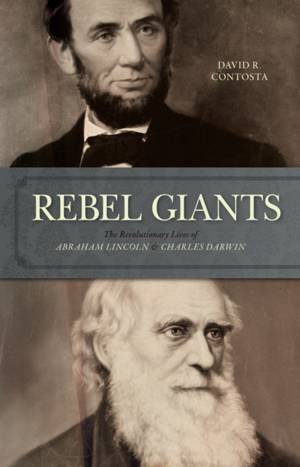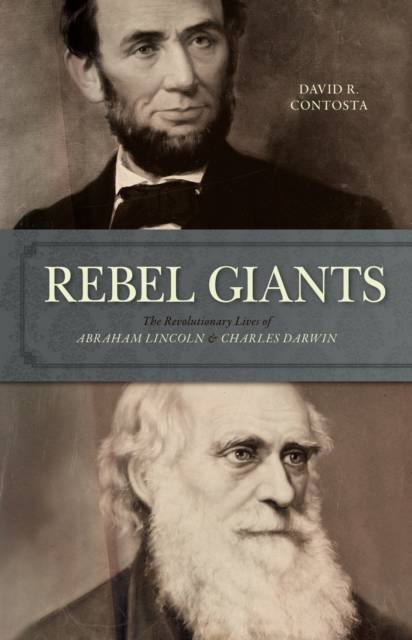
- Retrait gratuit dans votre magasin Club
- 7.000.000 titres dans notre catalogue
- Payer en toute sécurité
- Toujours un magasin près de chez vous
- Retrait gratuit dans votre magasin Club
- 7.000.000 titres dans notre catalogue
- Payer en toute sécurité
- Toujours un magasin près de chez vous
Rebel Giants
The Revolutionary Lives of Abraham Lincoln & Charles Darwin
David R Contosta
Livre relié | Anglais
34,95 €
+ 69 points
Description
February 12, 2009, will mark the 200th anniversary of the birth of two of the most extraordinary and influential men in recent history -- Abraham Lincoln and Charles Darwin. While the coincidence of these two men being born on exactly the same day might fill astrologers with glee, further reflection points to many parallels and intersections in their lives. In this unique approach to history and biography, historian David R. Contosta examines the lives and careers of Lincoln (the political rebel) and Darwin (the scientific rebel), and notes many surprising and illuminating points of comparison.Contosta points out that despite obvious differences -- one born to a poorly educated, impoverished family on the American frontier, the other to a wealthy and prominent English family; one largely self-taught, the other with a degree from Cambridge; one a politician seeking the crowd's approval, the other a reclusive scientist--there are striking similarities between these seemingly disparate individuals. Both Lincoln and Darwin: Lost their mothers in childhood and later lost beloved children at young ages.Had strained relations with their fathers.Went through years of searching for a direction to their lives.Struggled with religious doubt.Were latter-day sons of the Enlightenment who elevated reason over religious revelation.Suffered from severe bouts of depression.Were ambitious as well as patient, with sure and steady mental powers rather than quick minds.Possessed an excellent sense of pacing that allowed them to wait until the time was ripe for their ideas and leadership.Contosta makes a compelling case that by studying the similarities (along with the differences) between these two giants of history we are able to understand each man better than by examining their lives in isolation. This approach also affords many insights into the factors that impel special individuals to lead great paradigm shifts. Today, as American society still struggles to come to grips with the impact of racial integration and controversies over the teaching of evolution, it is more important than ever to understand how two nineteenth-century men with revolutionary ideas helped to shape the present.
Spécifications
Parties prenantes
- Auteur(s) :
- Editeur:
Contenu
- Nombre de pages :
- 365
- Langue:
- Anglais
Caractéristiques
- EAN:
- 9781591026105
- Date de parution :
- 01-04-08
- Format:
- Livre relié
- Format numérique:
- Genaaid
- Dimensions :
- 163 mm x 227 mm
- Poids :
- 644 g







